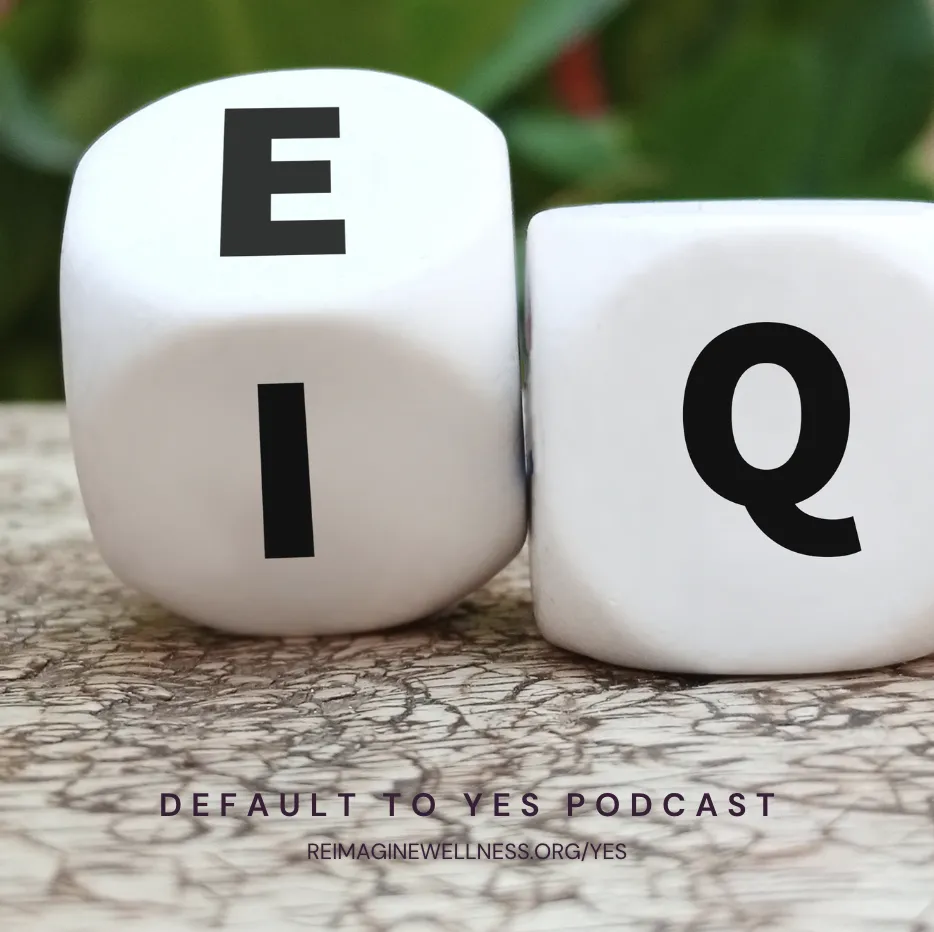
Looking to get out of your own way
and make things happen?
Could you use a little inspiration
along with some tips that are based
on the science of happiness and well-being?
The Default to YES Podcast, is for you.
New content every Monday, with an occasional bonus episodes with expert guests -
each one is designed to
get the week started in the right direction and keep us moving freely in the direction of our dreams!

Blog
Default to Yes! Your Extraordinary Self

Emotional Intelligence: Cultivating Better Relationships
A lack of emotional intelligence can significantly impact personal well-being, relationships, and overall quality of life. You may know someone who encounters difficulties in understanding and managing their own emotions, as well as in relating to others. This deficiency can lead to challenges in relationships due to poor communication, emotional outbursts, ineffective problem-solving, limited self-awareness, increased stress, and potential mental health issues. Are you thinking of someone you know? In professional settings, low EQ may lead to interpersonal conflicts.If you are wondering where your areas for growth are - or you are thinking of your friend, co-worker or family member - It's good to recognize that EQ can be developed and improved through self-awareness and intentional efforts.
Emotional intelligence (EQ) is a term that's been increasingly gaining prominence in our conversations about personal and professional success. But what exactly is EQ, and how can we harness its power to improve our lives and relationships?
The Science of Emotional Intelligence Emotional intelligence, often referred to as EQ, is the ability to recognize, understand, manage, and effectively use your emotions as well as the emotions of others. It's a skill that can have a profound impact on our lives, affecting our relationships, well-being, and even professional success.
Evaluating Your Own EQ Evaluating your own EQ is a vital step in personal growth. Here are some key indicators to help you assess your emotional intelligence:
Self-awareness: Do you recognize your own emotions as they arise, and can you pinpoint their causes?
Self-regulation: How well can you manage and control your emotional responses, particularly in challenging situations?
Empathy: Are you able to understand and share the feelings of others, demonstrating compassion and support?
Effective communication: Can you express your emotions clearly and actively listen to others to understand their perspectives?
Social skills: How well do you navigate social situations, build rapport, and resolve conflicts with others?
Relating to Others with Low EQ Encountering people with low EQ can be challenging, especially if they're unaware of their emotional intelligence deficits. It's important to approach these situations with empathy and patience. Here are some strategies:
Practice active listening: When interacting with someone with low EQ, listen attentively and validate their feelings, even if you don't agree with their perspective.
Use "I" statements: Express your feelings and thoughts using "I" statements to avoid appearing judgmental. For example, say "I feel" instead of "You make me feel."
Offer constructive feedback: If appropriate, provide feedback gently and offer solutions rather than criticism.
Set boundaries: Establish clear boundaries to protect your own emotional well-being while still showing empathy.
What Is a Good EQ? A good EQ is characterized by a balance in the five key aspects mentioned earlier – self-awareness, self-regulation, empathy, effective communication, and social skills. High EQ individuals tend to:
Be in touch with their emotions and understand their impact on their behavior.
Maintain composure in stressful situations.
Show genuine empathy and support toward others.
Communicate effectively, fostering open and honest dialogues.
Build and maintain strong, healthy relationships.
Impact on Our Lives and Well-being Emotional intelligence has a significant influence on our lives and overall well-being. It can lead to:
Improved relationships, both personal and professional.
Reduced stress and better emotional regulation.
Enhanced decision-making and problem-solving skills.
Greater job performance and career success.
A Memorable Framework: "R.A.I.S.E." Your EQ To help you manage and grow your EQ effectively, consider the "RAISE" framework:
Recognize Emotions: Practice self-awareness to recognize your emotions and understand their triggers.
Acknowledge Reactions: Acknowledge your emotional responses without judgment, and consider how they affect your behavior.
Improve Self-Regulation: Develop strategies to manage your emotions and respond thoughtfully rather than reactively.
Show Empathy: Practice empathy by actively listening and validating the feelings of others.
Enhance Relationships: Focus on building and maintaining healthy relationships through effective communication and strong social skills.
Incorporating this framework into your life can help you elevate your EQ, leading to more fulfilling relationships and greater well-being. Remember, emotional intelligence is a skill that can be cultivated and refined, and by doing so, you'll unlock the doors to a richer and more harmonious life
COMPANY
CUSTOMER CARE
NEWS
LEGAL

© Copyright 2025. Reimagine Wellness. All Rights Reserved.

